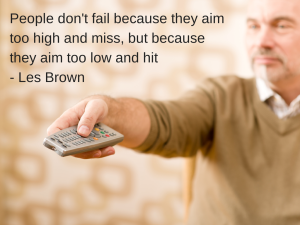This episode is now at jakeacarlson.com/fbf35
Category Archives: Personal Development
Just in Time Learning (JIT)
More Important Today Than Ever Before
In graduate school I spent a lot of time studying the theory of “Just in Time” manufacturing also known as JIT. The origin of JIT is not really known but the carmaker Toyota is credited with popularizing the system.
The idea is that by getting a handle on the production process from beginning to end and understanding that process fully, you can order supplies and have them arrive at the moment they will be used. The advantages of this efficiency are numerous, from not having to create space to store excess parts to no delays in waiting on delivery of needed supplies. Financially it also made sense, you paid for what you needed and used what you had, no overages, no shortages. The JIT concept came to America in the 60s and has been a staple of MBA courses since.
Today I want to talk about another JIT concept and that is Just in Time Learning. Similar to its manufacturing cousin, JIT Learning has many advantages that make it the learning theory of the future (and the future is now). JIT Learning is studying the lessons and concepts that you need to implement at the time of implementation and not earlier.
A quick example, in a year I want to add videos to my blog. I could take the time today to learn about YouTube and Vimeo and uploading video, purchasing lighting and editing, interview ideas, social media sharing and the list goes on and on. But I won’t need that knowledge until next year.
If I study video today I will use up time, which I don’t have, I will likely forget what I learn by the time I need the knowledge and next year the technology will probably be obsolete. JIT Learning says I should wait until next year and learn what I need as I need it. Just in Time Learning is more important today than it ever has been and here is why:
- We have access to so much knowledge- we can’t keep it all. Think of you mind as a computer with a hard drive and some RAM. The hard drive is for long term storage of ideas and the RAM is for ideas that you will use in the near term. The RAM is small and can only hold so much information, the hard drive has a much larger capacity but isn’t as easily accessible. As we continue to add new learning, we move thoughts and ideas from our RAM to our hard drive. The more we add to the RAM, the further the previous knowledge gets pushed into our hard drive. When it comes time to use knowledge previously learned, the further back in your hard drive it resides the longer and more difficult it will take to retrieve. Likely it will require a relearning to remember what you already learned. It is better to learn as needed and then implement it while the knowledge is still in your RAM.
- Not all knowledge is evergreen. You may be familiar with the term evergreen. It refers to the tree that no matter the weather or time of year remains green. This term can also refer to information and knowledge that doesn’t change. Most knowledge today is NOT evergreen. The skills and abilities you learned yesterday may not be applicable tomorrow. The time spent learning something before it is needed may be wasted. The technology you will need to accomplish your task in the future may not exist yet. Learning JIT ensures that you are always learning the most accurate, useful and applicable knowledge. If you learn processes before they are needed you run the risk of those ideas being obsolete by the time you implement them.
- Time is limited. You probably don’t have the time in a day to spend learning things that are not immediately important. The amount of information accessible is moving so fast that the time necessary to learn it all is impossible. If you spend your time learning lessons that “may” be applicable in the future you will not have time (or neglect) the learning and ideas necessary for today. If I spend time learning to create videos for my blog I will run out of time to learn the lessons necessary for my podcast. Time is a zero sum game- time spent here is time taken from there. By prioritizing your time you will realize that JIT Learning is the only efficient way to learn.
- Learning for tomorrow is just avoiding today. One of the reasons that many people spend time consumed with the lessons of tomorrow is so they can avoid taking action today. Creating a podcast is hard so I can avoid that struggle by spending time learning about tomorrow’s videos. Doesn’t make sense does it?
- Knowledge is easily accessible. Why spend energy and brainpower remembering something you can easily Google? I could memorize pi to the 50th digit (maybe) but why? I could also just look it up when I need it. As information becomes more accessible the need to memorize it becomes less important.
The secret to progressing forward and creating success in your life and in your work is to do the things necessary for today….now. Knowledge is readily accessible and should be consumed and used at the time of implementation. Just in Time Learning is productive and efficient learning.
Question: What is your secret to Just in Time Learning? Leave your comments below or by clicking here.
Free: 5 Easy Steps to Retrieve Your Amazon Kindle Highlights
FBF34 – 10 Super Secret Habits of The Wealthy
This episode is now at jakeacarlson.com/fbf34
This episode is now at jakeacarlson.com/fbf34
This is Not Your Parent’s Employment
Technology is changing, the culture of the office is changing and the economy is changing. If there is one thing that we can know for certain about the future, it’s changing. In the next few years we will see a change in employment that has never been seem before, a majority of management and top company leadership will be millennials- meaning they will be younger than the people they manage.
Millennials are the largest generation to date and the fastest growing group of employees. Many are rising through the ranks and beginning to hold positions of leadership and authority. As the years progress, more and more “kids” will be leading organizations.
On the flip side, baby boomers, faced with longer life expectancy and less robust retirements will be staying in the workforce longer than ever before. Even if baby boomers have fully funded retirement accounts, many are making the conscious decision to stay in the workforce for various reasons including the challenge, the excitement, the opportunity and the rewards.
All of this combines to make a unique circumstance in society where younger and younger people will be managing older and older workforces. This is not your parent’s employment. And I’m not even talking about the Facebooks and other millennial led organizations. So naturally this raises the questions; if I am a millennial, how do I lead an organization comprised of baby boomers? Or, if I am a baby boomer how do I take leadership from a millennial? Today I would like to offer 4 suggestions for you millennials and 4 for your Baby boomers to make employment work.
Baby boomers– If you find that you are now taking leadership and direction from a manager who is the same age as your kids:
- Don’t assume they don’t know anything- They might be slightly arrogant or have an insatiable social media appetite but do not assume that they do not understand the company, the objectives and how to perform. Many young people today are well educated and because of the abundance of information available are able to learn and grow quickly.
- Don’t assume they don’t respect you- Just because your kids roll their eyes when you talk doesn’t mean that your manager is thinking the same thing. Chances are that you arrived at your position because of the knowledge, experience and expertise that you have. Your manager regardless of age should respect that.
- Don’t assume that a lack of technological knowhow will reduce your effectiveness- Sure the world is changing and many tasks are being simplified through technological advances but the core of customer service and relationship management will still be face-to-face interactions. These are skills that no technology will make obsolete.
- Don’t assume you can’t learn anymore- A baby boomer can learn new tricks. This is evidenced by the fastest growing segments online and in social media….your fellow boomers. You are uniquely positioned because of your experience to grow faster and see opportunities others (millennials) miss.
The bottom line is that being a baby boomer could have some real advantages for you in the workforce. When I was applying for my MBA program, they gave special preference to applicants who had a few years work experience under their belt between undergraduate school and graduate school. The thinking was that life experience made the student more aware of options and solutions and a frame of reference in which to compare new ideas. A real asset.
Millennials– If you find yourself leading a team of baby boomers, here are a few suggestions to make the ride a little less bumpy:
- Don’t assume your baby boom followers think you are too young- Many of us suffer from the imposter syndrome. A feeling of inadequacy that forces us into thinking we are underqualified for the opportunities we are given. Remember that you have the position that you have because your boss saw something in you that gave them confidence in your ability. Sure you will make mistakes but that doesn’t mean you are not qualified, nor do your followers feel that way.
- Stop acting like age is important…it’s not- We have the tendency, because of the imposter syndrome, to defer decisions and responsibility to others. We may feel that because we are younger we don’t have much to offer; this is untrue. You have learned things faster and more efficiently than generations ahead just because of the availability and ease of access of information. My (grade school aged) kids are learning a second language on the couch with their Chromebooks- as a hobby. It is a different world and you bring knowledge previously reserved only for formal learning.
- Don’t talk down to your baby boomer followers- A leader leads a team through positive guidance and inspiring counsel. Treat employees of every generation with respect, encouragement and opportunities for growth.
- Listen- This isn’t just a millennial leadership suggestion but a general leadership imperative. To know how your team best responds, to know their needs and to gain their respect, a leader must actively listen and respond. A suggestion for millennials is to communicate with your team face-to-face (often). You may be comfortable behind the computer but your employees want to look into your eyes. To inspire you must be a part of the team.
The reality is, in the “new” economy, managers will need to be able to lead teams of people both older and younger than they are. And regardless of your age, you will need to be able to perform at a high and efficient level under the watchful eye of somebody with different experiences and expectations than your own. The age you are is the age you are- that will not change, but how you approach life and work….that is under your control. Age is unavoidable, this is not your parent’s employment, choose your attitude wisely.
Question: How have you seen the changes in employment culture as millennials enter leadership roles? Leave your comments below or by clicking here.
FBF 33 – Stand Up For Integrity
This episode is now at jakeacarlson.com/fbf33
This episode is now at jakeacarlson.com/fbf33
15 Traits of a Winner
The Tortoise and The Hare Parable - Got it Wrong
Are you the tortoise or the hare? If you said “hare”…. and you know the parable, then you know you will not succeed. Why’d you say that? You are going to be passed by the focused tortoise. Did you say “tortoise”…. sorry but you are not likely to win the race either. Surprise!
You see the parable got it wrong. We assume that the tortoise and the hare are the only participants in this race. If we do, we miss the real winner in the race to success- the person who has the focus of the tortoise and skill of the hare.
15 Traits of a Winner — Are You A Winner?
Think about yourself, think about your co-workers, and now think about a person you look up to who is succeeding and leading the way. Is that person slow and methodical but persistent or is that person fast and scattered? My guess is that he has qualities of both- fast and persistent. This mythical animal who actually wins the race is a leader. Here are 15 traits every winner must cultivate- the leader is:
- Creative- In the world of leadership the leader must have the ability to think outside the box and see opportunities before they become apparent to others in their industry. They stay ahead of the competition because they think creatively.
- Honest- The successful have a strict adherence to a code of ethics and honesty. They exhibit a courageous attitude and speak directly and clearly.
- Inspirational- To lead you need to inspire. You will cannot conquer the mountain alone, you need your support team. This is one thing I really respect about cyclists in major races like the Tour De France. Each cyclist on the team has a role and each must function at expert level for the leader to win.
- Teachable- Ever learning and increasing in ability. I recently told my daughter to study hard and work hard in school but not to focus too much on picking a career. Chances are by the time she enters the work force the career she had picked would no longer exist and the one she’ll end up with hasn’t yet been created. Knowledge and skills are evolving so quickly that an ability to continuously learn and improve will be invaluable.
- Delegate- A leader has the ability to enlist the troops and share the workload. Every participant of a team should be functioning in roles that they are ideally suited to. The leader shouldn’t be stuffing envelopes and the new hire shouldn’t be calling on the most influential client.
- Admits mistakes and (when appropriate) laughs- No leader is perfect and every leader will make mistakes along the journey. When you stumble or make a mistake be the first to admit, adapt, adjust and move on. A setback isn’t failure unless you let it stop your progress. If you can smile and shrug off setbacks you’ll be respected by your team.
- Confident- When the decision is made, the leader has the ability to confidently execute. Zig Ziglar used to say that “timid salesmen have skinny children”. A leader that displays a lack of confidence has few loyal followers and sales suffer. But, there is a difference between confidence and arrogance.
- Committed- The leader is committed to success and assumes the responsibility for attaining it. If you are only half “in the game” and if you bow out (quit) when the obstacles get tough you are not a leader.
- Passionate- Do you have that sparkle in your eye? Do you take the steps two at a time? If you are not super excited to do your job you will struggle as a leader. The barometer I often use for passion is: What do you think about in the shower? If it’s how to improve and grow at work…you have passion. If it’s the finale of the latest reality show…you probably lack passion. If you don’t have it you can build passion but that is a topic for another blog post.
- Intelligent- Hey smarty pants- you got to have the goods if you’re gonna lead. You must have industry and operational intelligence. You don’t have to be Einstein or know multiple languages but you do need a high degree of understanding about your business, your competitors and your industry.
- Accountable- I have spoken often about the need for accountability and goal setting. Leaders hold themselves and those they work with accountable to perform. They do what is required to make sure the job is done efficiently, accurately and timely.
- Positive- Coupled with a passion for what you are doing you can truly inspire and lead if you are optimistic. See the good in people, situations and the future. Pessimistic thinking never changed the world (tweet that!)
- Focused- Follow One Course Until S A leader understands the assignments, responsibilities, clients and products that have the biggest impact on success, performance and the bottom line. They do not allow peripheral opportunities distract and derail effort. This is the hare’s vital error.
- Communicator- A leader must inspire and that requires charisma. A leader stands in front of the team and communicate the rules, roles and opportunities. Clearly articulating individually and in a group is necessary for success.
- Generous- I will follow a leader that invests in me and it is likely you will too. Generosity is the new enrollment mechanism. A leader that shares in the workload, the ups and downs, the blame and triumph will always have loyal followers. Be generous in praise and reward those who perform and you will be leading.
The world has a lot of wannabe leaders- those who will eagerly accept the title and ancillary incentives but what we really need is leaders who will lead. Those who can inspire and lead will change the world. Are you the tortoise, the hare or a leader?
Question: How many of the 15 leadership qualities do you have? Leave your comments below or by clicking here.
FBF32 – The Retirement Answer Man with Roger Whitney
This episode is now at jakeacarlson.com/fbf32
This episode is now at jakeacarlson.com/fbf32
People Don’t Fail Because They Aim Too High…
This post is an excerpt from my free eBook. You can get the rest of the book by clicking here.
People don’t fail because they aim too high and miss, but because they aim too low and hit. – Les Brown
How big are your goals and dreams? Are they big enough to challenge you and make you work hard? Success can only come after hard work and required effort. Look at the people around you; do they have clearly defined goals?
Most people are living for a weekend when they can break from work. They enjoy watching movies and social media and have no plan for the future. Their biggest goal is to not miss the newest episode of popular reality television. The amusing thing about television is viewers use their time watching actors and athletes who are living their dreams. Landing a role in a popular primetime television show takes a lot of work and sacrifice. When an actor finally gets his big break and lands his big role he is living his dream.
There will undoubtedly be things you will have to sacrifice to succeed. I love this quote for so many reasons. It is human tendency to aim to low. Failure is not aiming too high and missing, that’s called experience. Failure is setting your sights too low and never realizing your potential. Too many are satisfied with status quo and never accomplish anything great. Aim for the moon, even if you miss you will end up with the stars.
Question: How do you define success? What are the things that you need to do to accomplish that goal?Leave your comments below or by clicking here.
Get Your Free Copy of 13 Life Quotes (the complete eBook) Here
FBF31 – Creating & Completing Your BHAGs (Big Hairy Audacious Goals)
This episode is now at jakeacarlson.com/fbf31
This episode is now at jakeacarlson.com/fbf31
Stop Trespassing on My Time
My phone began to ring and I stared at it and frowned. “Not Ryan”, I mumbled under my breath. Do you ever have experiences like that? I did recently, that was a true story about Ryan calling (names have been changed to protect the innocent/guilty). I couldn’t figure out why I was feeling the way that I was. I like Ryan, we get along very well and are interested in a lot of the same things, but for some reason I felt an urge to not pick up the phone.
As I thought about this experience I realized that it wasn’t Ryan specifically I was avoiding, it was his requests. You see every time that we talk he has something he needs my help on. And because I like and respect him, I have a hard time (ok impossible time) saying “no”; everything from relationship advice and moving furniture to last minute rides and finishing projects at work.
Boundaries are tricky aren’t they? It is tough to determine what you “should do” versus what you “could do”. The trick is realizing that you have certain responsibilities but other requests fall outside of that responsibility. When we are in the middle of the situation is it difficult to recognize the level to which requests distract and derail our other efforts.
There are many reasons that we may be hesitant to decline requests for help. You may fear the relationship will be irreparably harmed. You may have to deal with unpleasantness like anger or immaturity. You may not understand what is your responsibility and confuse a “should” with a “could”. You may also feel some level of commitment or guilt if you do not help out. All of these are valid reasons making saying no even harder.
Recognizing that every time you say “yes” to something you are saying “no” to something else will help. I used to, and unfortunately sometimes still do, get caught up at work trying to finish just 1 more project and end up late for dinner with the family. I am really saying “yes” to my career and “no” to my family.
You must recognize that there are times and places for both in every life. I would love to stay home and be with the family all day but it is hard to feed them on that effort. Similarly, if I decide to go golfing on Saturday morning, I need to recognize that I have just said “yes” to 6 hours in the weeds instead of 6 hours at home (probably in the weeds). That realization has helped me to prioritize and determine which choice is best for me.
Even when you make the decision that saying “no” is the right decision for you, it still requires actually saying “no”. So, how do we make saying “no” a little bit easier? Here are 11 steps to softening the “no”:
- Listen to the request fully and respectfully- Give the person making the request the opportunity to fully articulate the need.
- Get to know your “yes”- Before you can get really good at declining offers you need to understand what you want to say “yes” to. What are the things in your life that take priority and then say “yes” to those first. Otherwise you may end up saying “no” them by default.
- Practice- The first time you say “no” you may find it difficult, but as you work on it and gain more experience it will become easier. Start with small inconsequential requests and move on to larger requests as you develop.
- Pause before responding to any request- Take a few moments to think about what is being asked and evaluate it against your other commitments and responsibilities. Determine if it is a “should” or a “could”. I have a friend who never agrees to anything immediately when asked. Her response is always “let me check on a few things and get back to you”. This gives her the opportunity to fully vet each request and when she does accept a request she is fully committed.
- Simply say “no” (or as simply as possible)- When you determine that you cannot accept a request respond with a clear decline. Do not try to soften the response by being vague or cryptic. Either you can or you cannot do what is requested.
- Recognize your time is your time and it is valuable- Each request is taking something from you, your time, and that has value to it. Know your priorities and what you can realistically accept.
- When appropriate give a brief reason for declining- It is important to be honest and when appropriate you can share why you are unable to accept the request. People will respect your directness.
- But don’t feel obligated to explain- You are in control of your life and your reasons for declining are your own. You do not need to justify or be confrontational when you decline.
- Script it out- When you know a specific unrealistic request is coming you can prepare by writing out a response ahead of time. Or you can respond to a request through email or text which will give you a chance to fine tune and wordsmith your response.
- Have alternatives- A great way to decline a request is to couple that “no” with alternative options. Maybe you cannot help but could Sally?
- Finally, stay firm- Once you have made a decision stand your ground and stay committed. A good decision made after deliberation shouldn’t be changed in the heat of the moment.
Whatever steps you choose and use know that you are making a decision for yourself to prioritize what is important to you. Nobody has control or power over that. Say “no”…firmly, frequently and with respect. Stop Trespassing on My Time.








